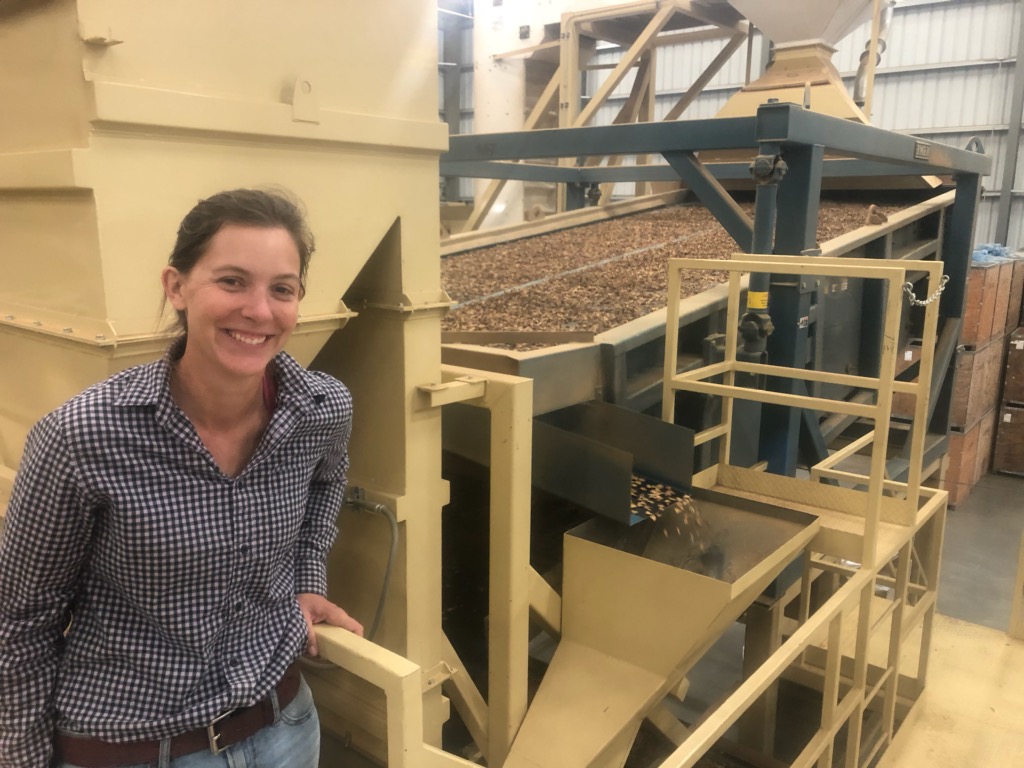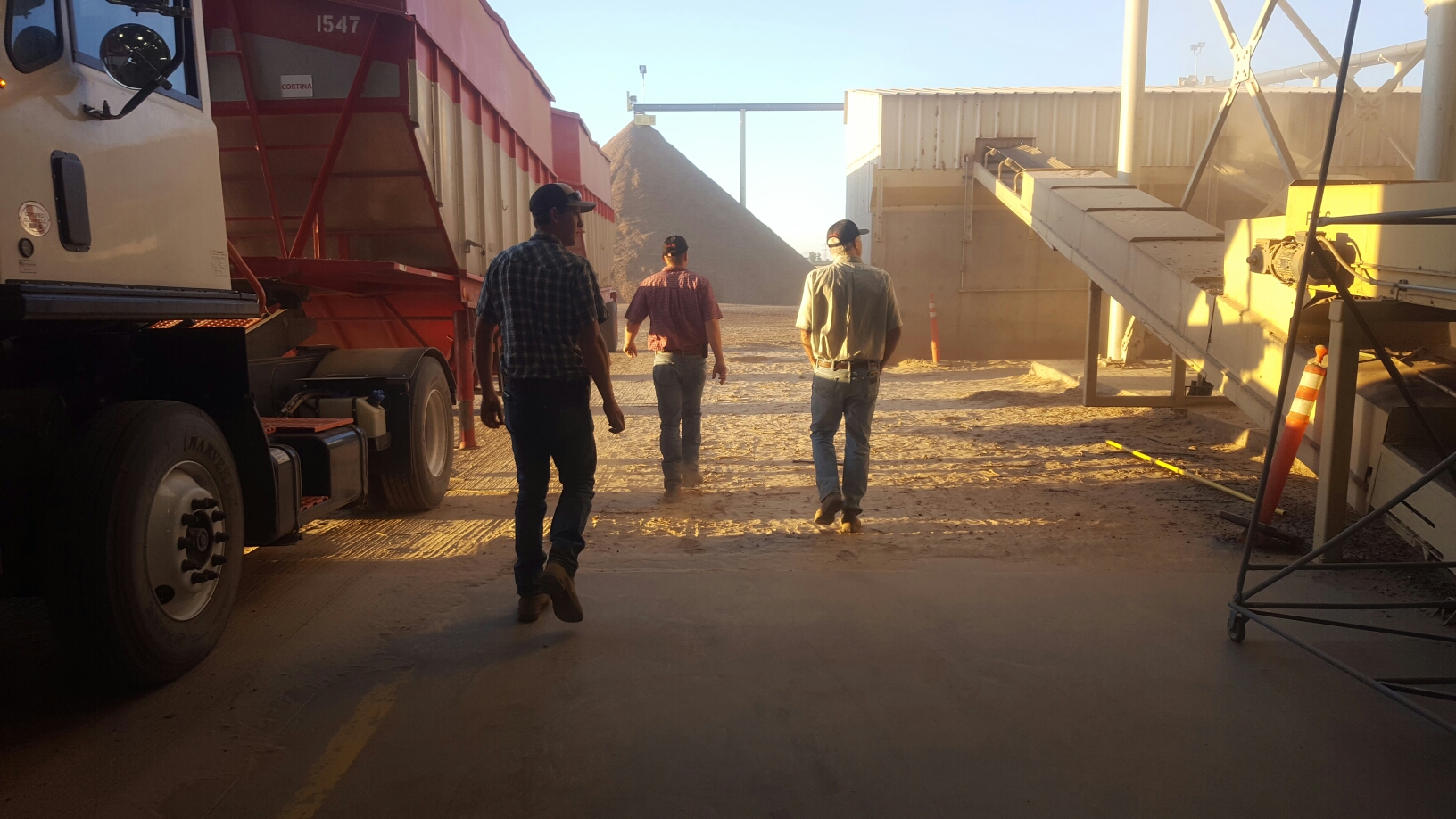Bruce Rominger’s family has been in Yolo County since the California Gold Rush and involved in agriculture for nearly as long. Today, this fifth-generation farmer spends more and more time thinking about who will continue his family’s legacy and pass on the tradition he was handed 60 years ago. For a while now, he’s known his family will need help maintaining their farming operation, both the land they own and the land they rent, especially as they’re consistently planting different crops and trying different practices on those crops to see what works best.
 "It’s a great opportunity – and a rare opportunity – to plug into a working ranch and have a chance to learn a lot very quickly," said Alex Hasbach of the Beginning Farm and Ranch Management Program.
"It’s a great opportunity – and a rare opportunity – to plug into a working ranch and have a chance to learn a lot very quickly," said Alex Hasbach of the Beginning Farm and Ranch Management Program.
“We’re not growing the same crops as we were when we were kids, and we don’t know what the next generation of farming looks like,” said Rominger. “As an operation, you must be able to adapt to what the consumer and the economy wants.”
And for Rominger and family, part of adapting involves looking outside blood lines for support on the farm.
Enter Alex Hasbach, a graduate from Stanford’s undergraduate and master’s programs who majored in Earth Systems. As a student, Hasbach was interested in agriculture from a global food security standpoint, so right after completing her schooling she moved to East Africa to work at a non-profit, where her clients were subsistence farmers. When she decided it was time to move back to the states, she knew she wanted to be involved in agriculture but had no idea where to start or how to get plugged in.
Rominger needed an able-bodied, driven and innovative employee, and Hasbach needed a job and wanted one in agriculture. And through a program run by the Center for Land-Based Learning, both parties found exactly what they needed.
The Center for Land-Based Learning is a non-profit organization based in Winters whose mission is to “cultivate opportunity for youth, for agriculture, for business, for the environment” by helping to train up new farmers, grow and develop the current ag workforce and expose more youth, in particular, to California agriculture and environmental subjects.
The organization provides a wide range of programs for those interested or already involved in agriculture. One of these programs, the Beginning Farm and Ranch Management Program, seeks to “train individuals for farm management jobs by providing practical experience, valuable skills, connections to farmer mentors, and an industry-recognized credential,” according to Land-Based Learning’s website. The whole purpose behind the program is to meet a need expressed by Rominger, a need for skilled workers to fill in the labor gaps that exist in the expansive realm of California agriculture.
Applicants to this program who are accepted are paired with at least one farmer and required to complete 3,000 hours of training and development under their guidance. Apprentices are hired on as employees by participating farmers, or, if a farmer already has someone in their workforce who has potential to be in a higher position and who they want to train up, the program will work with that farmer to create that pathway for their employee. The program also includes a curriculum component where participants will have the opportunity to take classes at local colleges in order to expand their knowledge in agricultural science, small business operations and more.
“Some program participants are familiar with agriculture but require more hands-on training, and others have been working on a farm they love for a long time and simply need a few more skills to take a more leadership role and better support that operation,” said Marisa Alcorta, apprenticeship program manager for Land-Based Learning. “This program seeks to help both those persons by providing them with the skillset they need to advance in their own careers and also best support California agriculture.”
To best address the labor needs of each specific commodity, the Center for Land-Based Learning created a short survey that will help determine what gaps exist in each industry. Almond growers and processors are strongly encouraged to complete the survey created for the almond industry to help the organization build the most helpful, sustainable program possible that truly addresses the existing needs in the industry, particularly in the realm of developing highly trained, technically-skilled workers. This all ladders up to Land-Based Learning’s key initiative to connect growers and processors with those eager to learn the necessary skills that will help them advance their own careers while supporting the larger California almond industry.
“For the applicant, this program will provide a kickstart in the almond industry, especially for those who don’t already have experience with this commodity. For the almond farmer or processor, this is an opportunity to have someone with genuine interest in agriculture who has been trained in a specialized field to be added to your workforce to help fill in existing or upcoming gaps on your operation,” said Alcorta. “Beyond that, though, farmers have the opportunity to make their mark on someone else’s career in agriculture and to support and train up the next generation of almond industry members.”
“It’s hard to say if I got lucky with having such a good apprentice, or if I’m an amazing trainer,” chuckled Rominger, “but either way I was very pleased with the program and thankful for the new hardworking, full-time employee it connected me with.”
And you can bet that new full-time employee is grateful, too.
“It’s a great opportunity – and a rare opportunity – to plug into a working ranch and have a chance to learn a lot very quickly. Through Bruce and Marisa, I’ve plugged into a professional network filled with people who I can call and ask questions to when I’m in the orchard trying to figure something out, and that’s really invaluable,” Hasbach said.
Growers interested in completing the Center for Land Based Learning’s short survey are invited to click this link. Those with further questions about the Beginning Farm and Ranch Management Program are encouraged to reach out to Marisa Alcorta at marisa@landbasedlearning.org.
 As Bruce Rominger (right), a fifth-generation farmer, looked to sustain the future of his family's operation he saw a need for additional skilled support. Enter the Center for Land Based Learning's Beginning Farm and Ranch Management Program.
As Bruce Rominger (right), a fifth-generation farmer, looked to sustain the future of his family's operation he saw a need for additional skilled support. Enter the Center for Land Based Learning's Beginning Farm and Ranch Management Program.